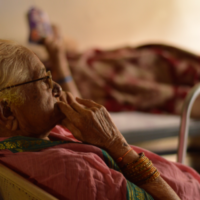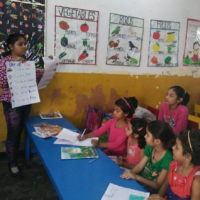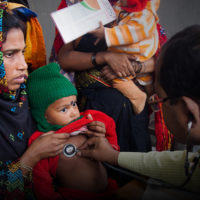ISRAEL has fully vaccinated 62% of its population against the coronavirus. On the other hand, Nigeria, whose population is almost 20 times bigger, has vaccinated less than 1% of its population. This gap is likely to grow as Israel has rolled out the booster dose for its senior citizens and other vulnerable sections.
When it comes to Covid vaccinations, the chasm between the “haves” and the “have nots” is staggering. According to the World Health Organisation, over 5.7 billion vaccine doses have been administered globally, but 73% of all doses have been administered in just 10 countries. High-income countries have administered 61 times more doses per inhabitant than low-income countries. The longer vaccine inequity persists, the more the virus will keep circulating and evolving, and the longer the social and economic disruption will continue.

Several countries beginning with Israel have started giving the third dose to people already vaccinated against the coronavirus. This has been done to bolster immunity as the Delta variant spreads around the world.
But is the booster shot effective? Apparently, not very much. That’s the consensus of a group of international scientists published in the influential medical journal, The Lancet.
The group of scientists includes two top US regulators. The scientists say that two doses are working just fine, even against the more contagious Delta variant. “Even in populations with fairly high vaccination rates, the unvaccinated are still the major drivers of transmission,” the paper says.
This is not the first time that scientists have raised questions on the efficacy of booster shots. Some have argued that there isn’t enough data to support the third shot. For instance, Dr Priya Sampathkumar, an epidemiologist at the Mayo Clinic in the US, has said that a booster could be needed for the public in the future, but not right now. “There isn’t enough data to support the third booster for all at this point,” she told CNBC.
But some companies, including the manufacturers of the Pfizer-BioNTech vaccine, have a different view. They say that a third vaccine shot boosts antibodies against several versions of the coronavirus, including the highly contagious Delta variant.
Governments worldwide, including the US, are pushing ahead with the booster dose and believe in its efficacy. For instance, top US infectious disease expert Dr. Anthony Fauci has said that booster shots are “inevitable.”

The administering of the booster dose also has raised the ethical question. Is it fair that the well-to-do countries stock up the vaccines even as a majority of the developing countries are yet to vaccinate even the most vulnerable?
The WHO chief Tedros Adhanom Ghebreyesus alluded to just that when called for a global moratorium on the booster dose, saying, “I understand the concern of all governments to protect their people from the Delta variant. (But) We cannot and should not accept countries that have already used most of the global supply of vaccines using even more of it while the world’s most vulnerable people remain unprotected,” he said.
COVAX, the UN-backed programme to supply vaccines to low-income nations, feels the pinch on vaccine supplies and booster doses will hamper its operations even further. The supply-side problems include production schedules, exports bans, and rich nations’ hoarding the vaccines. COVAX has reduced its forecast of doses available for the year by nearly a quarter.

The WHO has requested world leaders to postpone the rolling out of boosters until the end of the year. At least till the goal of immunising 40% of the global population is achieved. The high-income countries have not agreed to this proposal so far. And they are unlikely to do so in the near future.
Established in 2000, Give is the largest and most trusted giving platform in India. Our community of 2.6M+ donors have supported 2,800+ nonprofits, impacting 15M+ lives across India.
Discover more from give.do
Subscribe to get the latest posts to your email.



